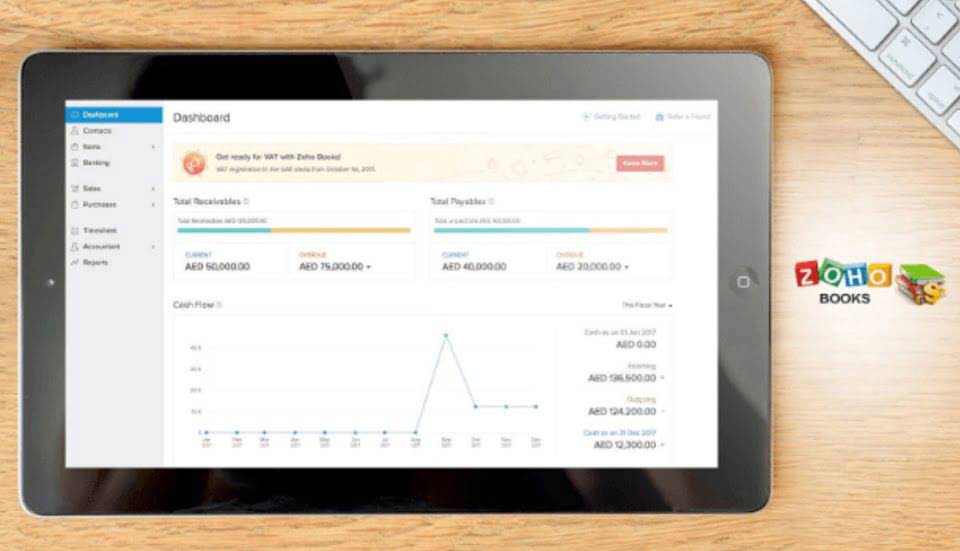
QuickBooks is an excellent option for novice and seasoned digital bookkeepers. In short, bookkeeping is just one facet of doing business and keeping good financial records. With well-managed bookkeeping, your business can closely monitor its financial capabilities and its journey toward greater profits, breakthrough growth, and the https://www.bookstime.com/ success it deserves. Without them, it’s nearly impossible to make informed decisions about your business’s financial health. Your company’s assets are what it owns and are usually broken down into two categories—current assets and fixed assets. Current assets include cash, accounts receivable, inventory, and prepaid expenses.
Revenue refers to all the income that comes into the business after selling products and services. The first three basics of bookkeeping discussed above are what you’ll find in the Balance Sheet. To balance the books, you need to carefully monitor the assets, liabilities, and equity. Some accounting firms have a bookkeeping department that keeps your accounts up to date and produces monthly reports.
What Is Bookkeeping? Definition, Types & Importance
They apply to almost any business type and size, which makes having these basic bookkeeping skills valuable. Retained earnings accumulate, meaning they reflect the total amount of money retained since the company’s launch. If properly updated, it doesn’t take much time to manage this account. In the retained earnings account, bookkeepers monitor any profit the company makes that isn’t paid out to owners and investors.

We tell you about some of the most popular bookkeeping formats, allowing small business owners to proactively handle bookkeeping. It calls for a greater understanding of records obtained from bookkeeping and an ability to analyze and interpret the information provided by bookkeeping records. Business entities choose from two types of bookkeeping systems, although some entities use a combination of both.
Do I have the time?
We recommend verifying with the source to confirm the most up to date information. If you are just starting out, you might look into hiring a less educated and less expensive bookkeeper/accountant. But the job description is basically the same, to help run the daily books for businesses and individuals. With a firm like Bench, you can partner with your very own bookkeeper and interact with them on a daily basis if needed. Thanks to the digital age, you now have the opportunity to outsource your bookkeeping to a firm or agency for a lot cheaper than having a bookkeeper on staff. A Certified bookkeeper must have at least 2 years (proven) experience working in the accounting field, and pass a four-part national exam.

There’s always a demand for experienced, efficient bookkeepers in nearly every industry. Companies often outsource the organization of their finances to independent professionals, then hire accountants for more complex issues and tax filing. The double-entry system of bookkeeping is common in accounting software programs like QuickBooks.
How to Do Bookkeeping: Basics Every Small Business Owner Needs to Know
Bookkeepers record and classify financial transactions, such as sales and expenses. They maintain accurate records of daily financial activities and manage accounts payable and accounts receivable. An accountant can certainly perform bookkeeping tasks, but the title generally involves other responsibilities as well. An accountant may interpret the financial records put together by a bookkeeper to assess a company’s financial health. Becoming an accountant usually requires more training and education than bookkeeping but can be a good next step in your financial career. The two accounting methods are cash accounting and accrual accounting.
- In our program, you’ll take a wide variety of courses to help you become a top-notch corporate accountant for any type of business.
- Since bookkeeping is a more straightforward process than accounting, it is something that many people can (and do) opt to take care of themselves.
- This content is for information purposes only and should not be considered legal, accounting, or tax advice, or a substitute for obtaining such advice specific to your business.
- Some accounting firms have a bookkeeping department that keeps your accounts up to date and produces monthly reports.
- If your company is larger and more complex, you need to set up a double-entry bookkeeping system.
- Thanks to the digital age, you now have the opportunity to outsource your bookkeeping to a firm or agency for a lot cheaper than having a bookkeeper on staff.
These services include recording what money comes into and flows out of a business, such as payments from customers and payments made to vendors. While bookkeepers used to keep track of this information in physical books, much of the process is now done on digital software. Bookkeeping is the process of tracking all documentation of any financial transactions that a business entity makes from launch to closure. Business owners or bookkeepers record business activities based on supporting documentation, depending on the accounting principles the company implements. Documents can be bills, receipts, invoices, purchase orders, or other financial reports that indicate a transaction.
A Guide to Different Types of Bookkeeping
Generating financial statements like balance sheets, income statements, and cash flow statements helps you understand where your business stands and gauge its performance. For these reports to types of bookkeeping portray your business accurately, you must have properly documented records of your transactions. Keeping these records as current as possible is also helpful when reconciling your accounts.
Ten Minutes With Tipton: Panther Band Director Clark Keele – Porterville Recorder
Ten Minutes With Tipton: Panther Band Director Clark Keele.
Posted: Tue, 14 Nov 2023 18:08:00 GMT [source]
If you’re ready to take bookkeeping off your plate and delegate this task to someone else, it can be hard to know where to look. Start by reaching out to other business owners for recommendations, searching online for providers and checking out reviews on Google or Yelp. If you don’t feel comfortable with a freelancer, there are many firms that offer bookkeeping services as well. Start by deciding on the system you want to use, whether it’s an online program, paid software or a spreadsheet. Next, set aside a dedicated time either weekly or biweekly to review your bookkeeping, reconcile transactions and complete necessary data entry. Finally, you’ll want to decide how all receipts and documents will be stored.
Accurate bookkeeping is vital to filing tax returns and having the financial insights to make sound business decisions. Bookkeeping is the process of tracking and recording a business’s financial transactions. These business activities are recorded based on the company’s accounting principles and supporting documentation. Bookkeeping services are the work of keeping up with your general ledger—the recording of all your expense and income transactions. Said another way, bookkeeping is the process of “keeping the books”—recording the day-to-day transactions of a business. Depending on how many transactions your business incurs on a monthly basis, you may need a part-time or full-time bookkeeper.
- Your retained earnings accounts look after any money reinvested into the business from profits.
- Cost accountants analyze these expenses to provide better cost management solutions.
- Small businesses also manage their own accounts receivable to make sure they get paid on time for goods and services that have already been bought or rendered.
- Accounting software makes it easy to store these documents and reference them in case of an accounting error or audit.
- Tracking your A/R, usually with an aging report, can help you avoid issues with collecting payments.
- But there is so much more to it than that, and we teach it all in our Corporate Accounting & Financial Analysis program.
Turn your receipts into data and deductibles with our expense reports that include IRS-accepted receipt images. MANAGEMENT SUPPORT – Assists the department supervisors in monitoring work orders assigned or generated through AiM. Acts as liaison between department supervisors and Facilities Services Work Management Center to verify the status of work orders not completed for thirty days, sixty days, and ninety days. Assists department supervisors in the cleaning up of bill errors and work orders completed without charges. Ensures continuity between the work order management system and the purchasing system. We make money from affiliate relationships with companies that we personally believe in.
Handle accounts receivable and payable
This is much different to a general or Full Charge bookkeeper and will cost more to hire them to manage your business finances. Each of them knows the basics, but the more advanced types of bookkeepers can even do tax prep and other skilled operations, like financial statements. As a freelance business owner, it can be overwhelming to do all the daily tasks on your own.
